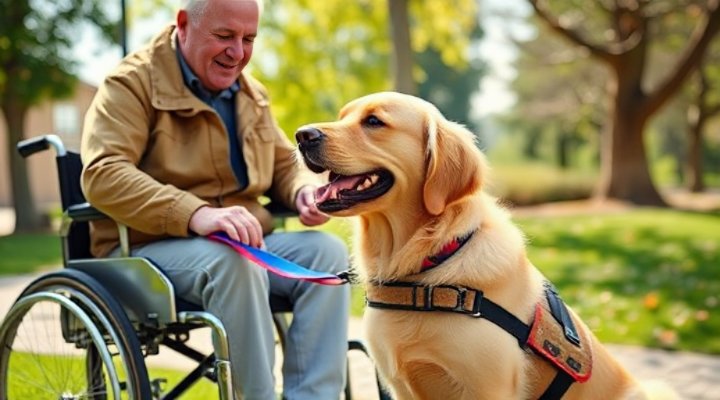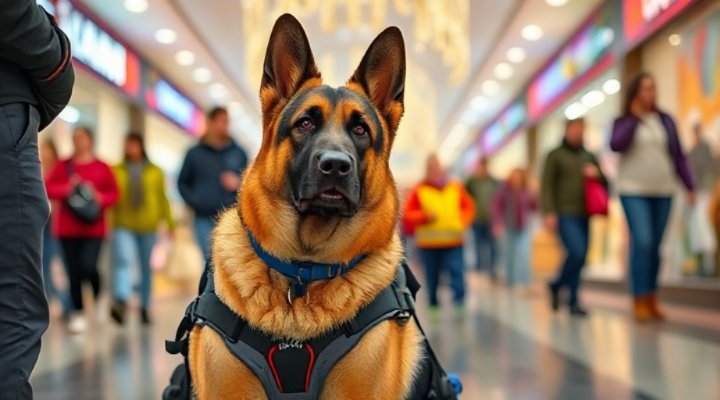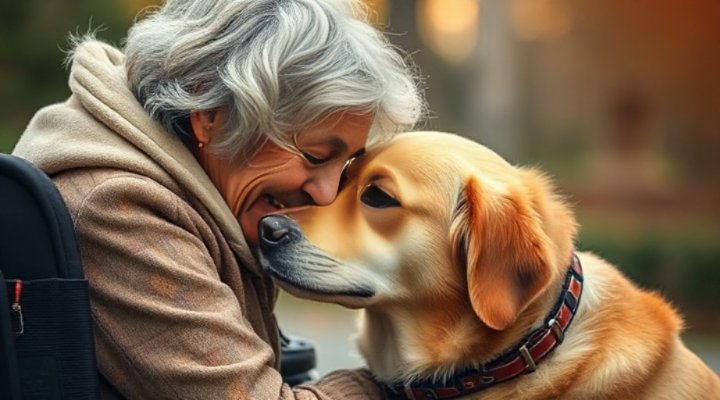Service dog training is a rewarding journey that transforms an ordinary dog into an extraordinary working companion. Above all, it’s about creating a strong bond between the dog and its handler while teaching specific skills to assist with disabilities. In other words, service dog training goes beyond basic obedience – it’s about developing a reliable partner for daily life.

What is Service Dog Training?
Service dog training focuses on teaching dogs to perform tasks that mitigate their handler’s disability. For example, a service dog might be trained to retrieve items, provide stability, or alert to medical conditions. Meanwhile, the training process requires patience, consistency, and positive reinforcement techniques.
If you’re considering selecting a dog for service work, certain breeds like Golden Retrievers, Labradors, and German Shepherds are often recommended due to their intelligence and temperament.

Essential Steps in Service Dog Training
1. Foundation Training
Firstly, every service dog needs solid basic obedience skills. This includes commands like sit, stay, come, and heel. Subsequently, you’ll build on these fundamentals with more specialized tasks.
2. Task-Specific Training
Next, identify the specific tasks your service dog needs to learn. For instance, a dog assisting someone with mobility issues might need to learn how to open doors or retrieve dropped items. The ADA guidelines provide valuable information about what tasks qualify a dog as a service animal.

3. Public Access Training
Most importantly, service dogs must behave impeccably in public. This means remaining calm in distracting environments and ignoring food or other animals. Our guide on dog socialization can help with this crucial aspect of training.
Challenges in Service Dog Training
However, training a service dog isn’t without its challenges. Some dogs may struggle with certain tasks or environments. On the other hand, with proper training methods and patience, most issues can be overcome. For example, if your dog shows signs of stress, you might need to adjust your training approach or seek professional help.

Maintaining Your Service Dog’s Skills
After your dog has learned its tasks, ongoing training and reinforcement are crucial. Likewise, regular health check-ups and proper care ensure your service dog remains happy and effective in its role. Our article on advanced dog training offers additional techniques to keep your dog mentally stimulated.
Remember, service dog training is a continuous process that strengthens the bond between you and your canine partner. As a result, you’ll develop a relationship built on trust, understanding, and mutual support.

Related Keywords
service dog training, train a service dog, working dog training, assistance dog training, dog training for disabilities, service dog tasks, service dog breeds, public access training for service dogs, service dog certification
